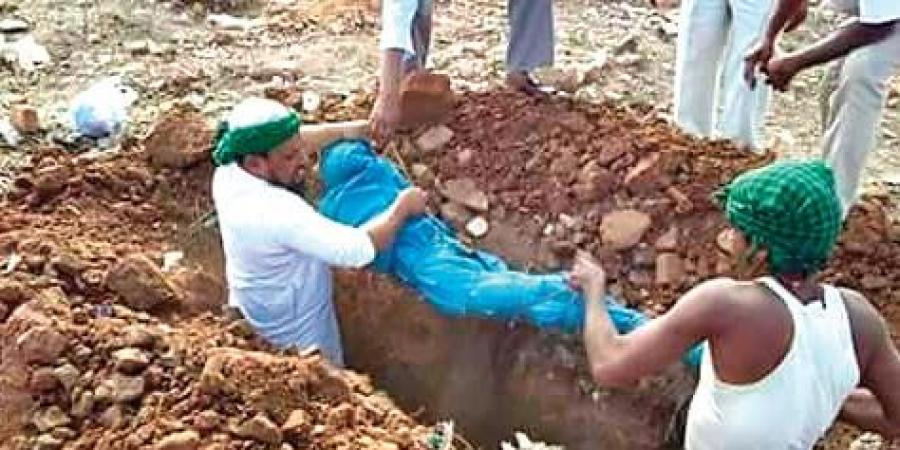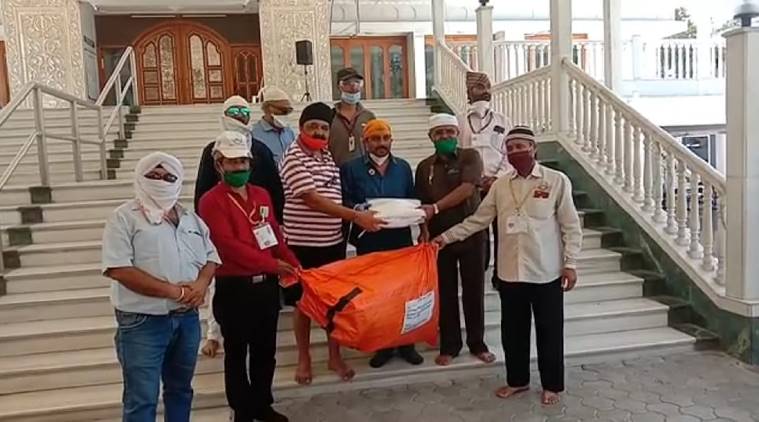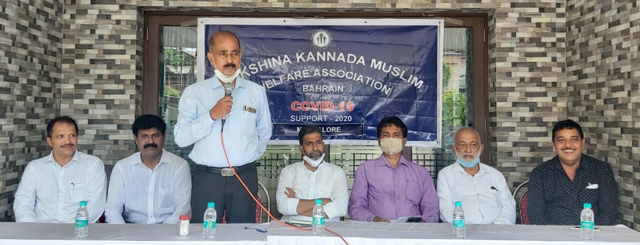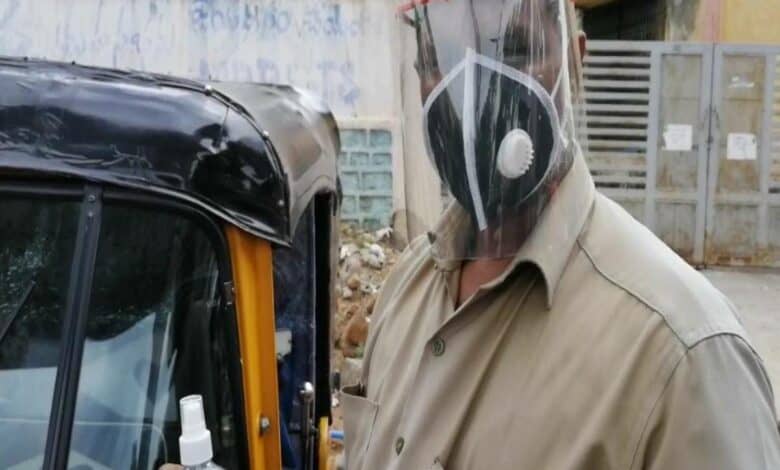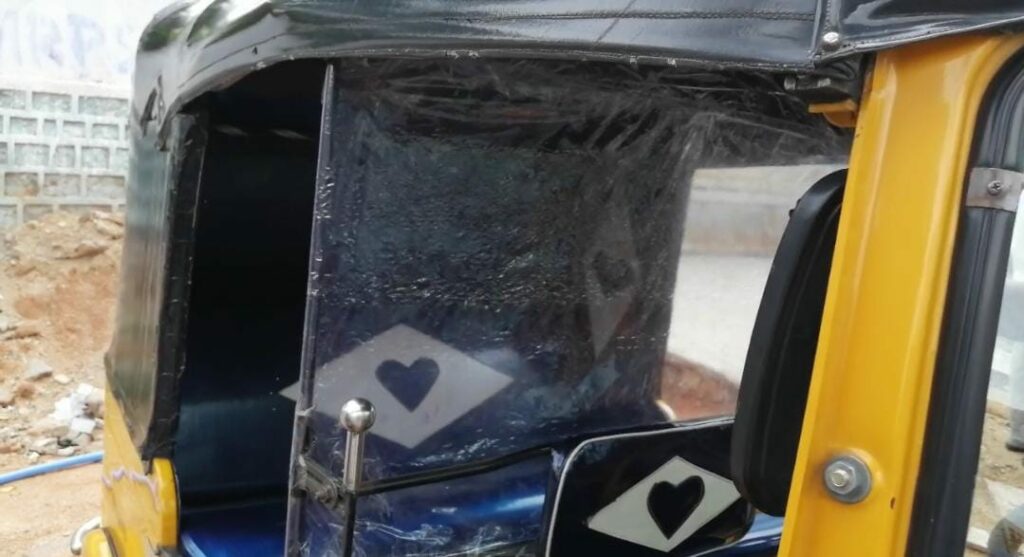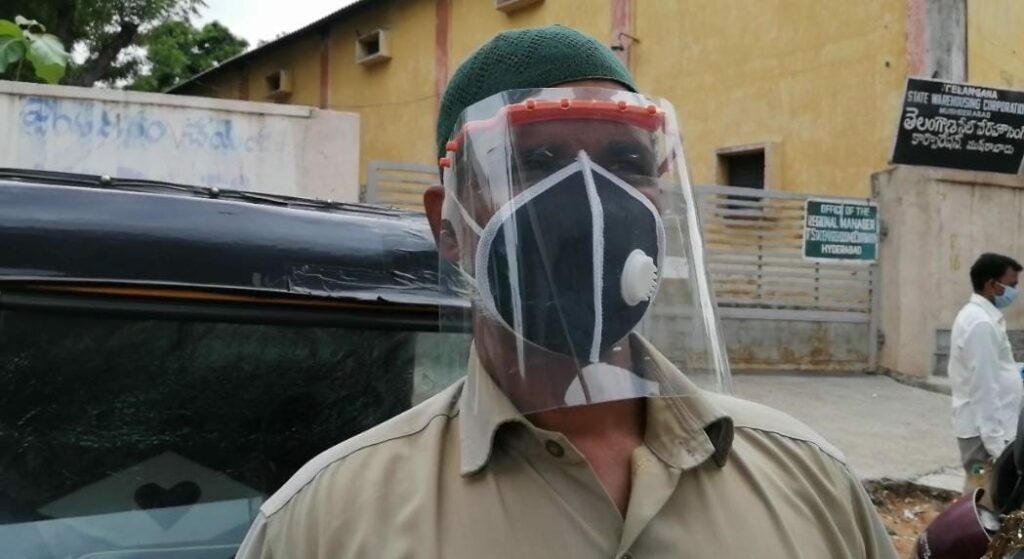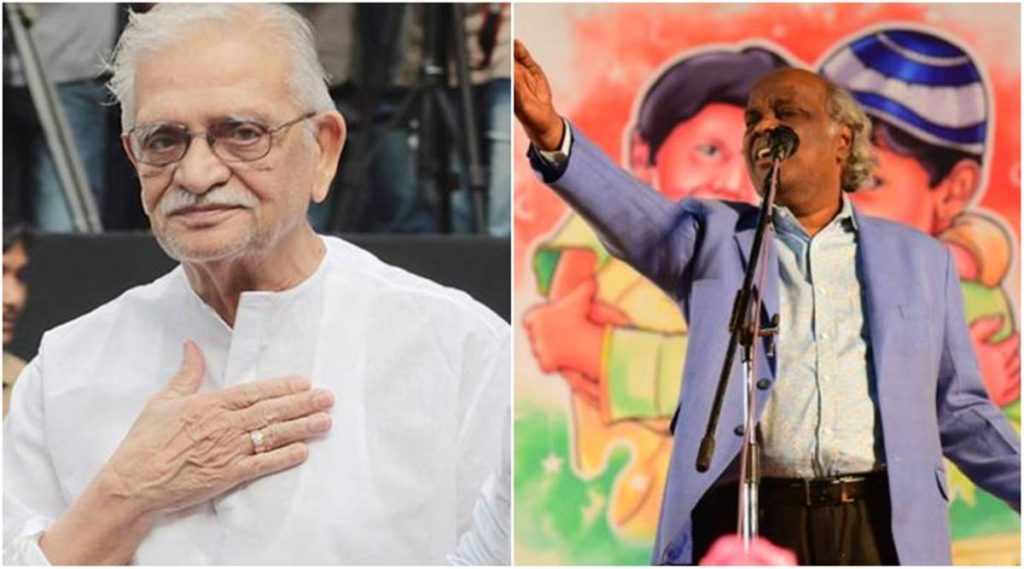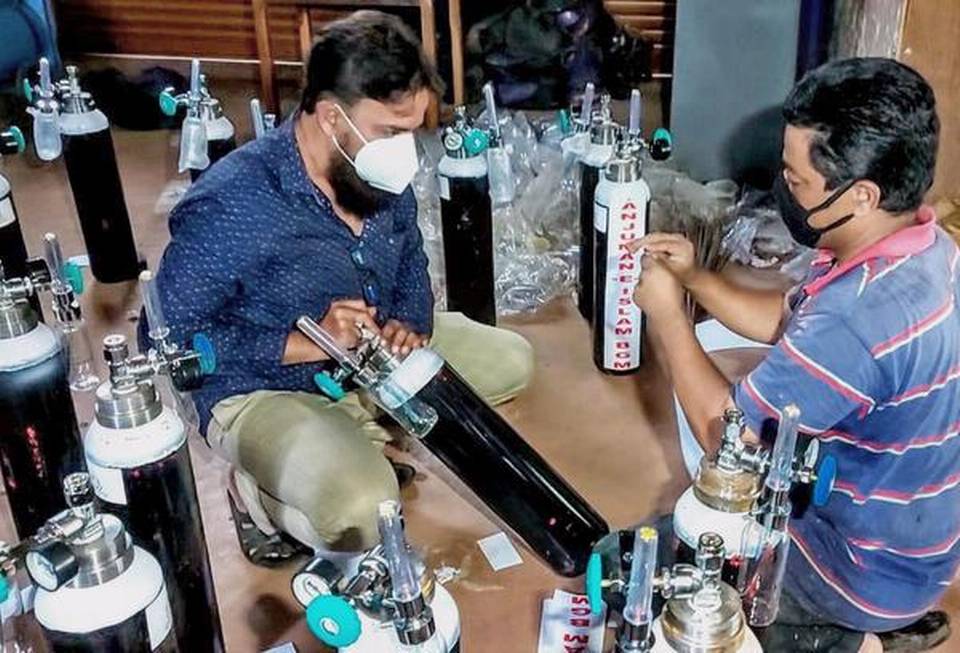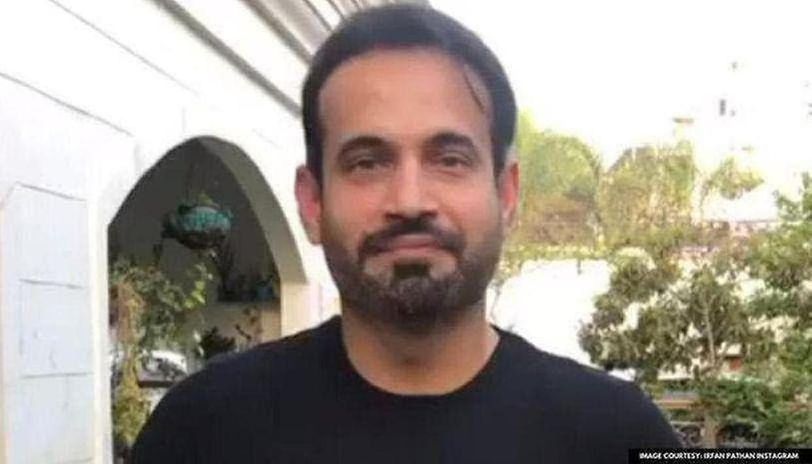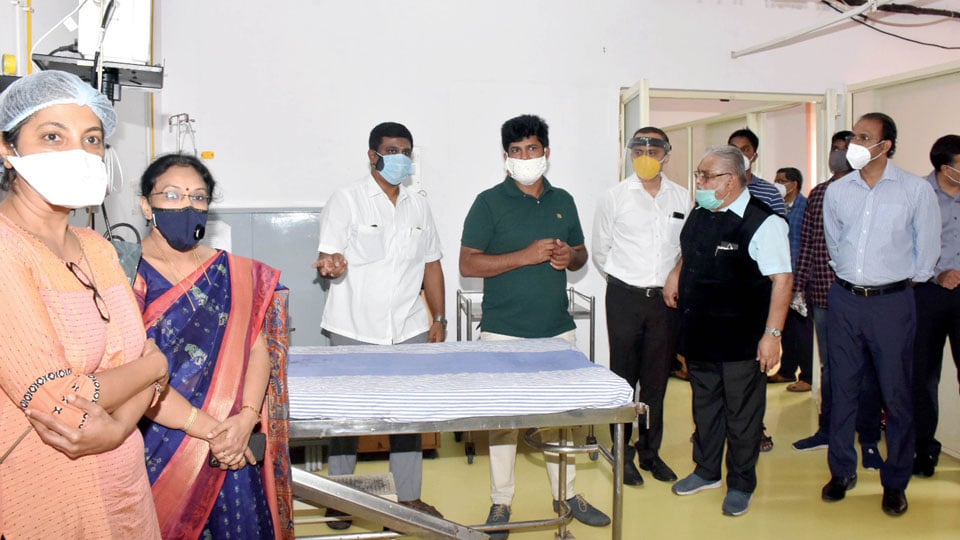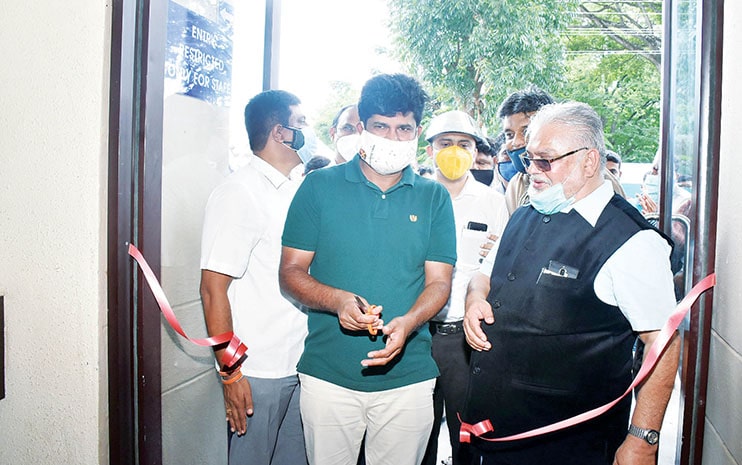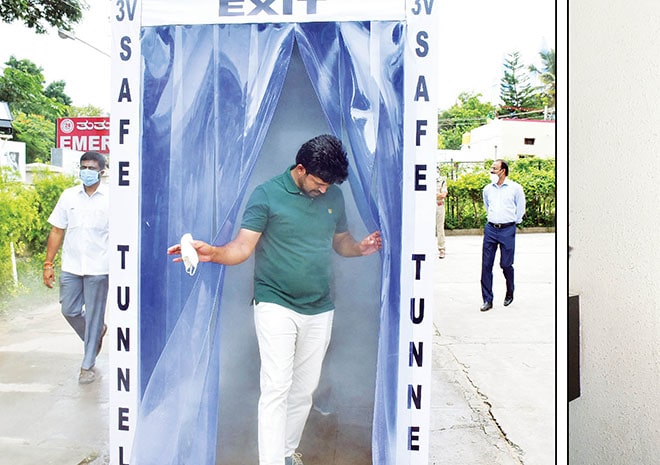Hyderabad, TELANGANA :
“God forbid, if the patient dies, we have also kept arrangements in place to shift the body to the graveyard and also to look into other formalities like shroud, etc,” added Dr. Fakhruddin.
Hyderabad :
Al Hamd and Mesco led by Dr. Md. Fakhruddin Sahab and Abdul Azeem has initiated COVID relief operations. The team will function round the clock in the twin cities of Hyderabad-Secunderabad.
The team will be fully equipped with operational vehicles after a formal inauguration on 3 August, the operations then will begin in full swing. People can access their services through the helpline number 8008834011.
People of Hyderabad are panicked and confused with the way COVID is being managed in the state. Hospitals remain overcrowded with no beds available and the people are at a loss not knowing what to do. In such a scenario, Hyderabad is likely to explode, more so after Bakrid, predict some health care professionals.
Al Hamd and Mesco have jointly come to relief, especially the poor, marginalized sections of society from this mess. While several are unaware of being asymptotic or symptomatic others take it easy thinking they are invincible.
Equipment, arrangements in place
The team of Al Hamd and Mesco will focus more on preventing the spread of the disease. Talking to Clarion India, Dr. Fakhruddin, who is leading the team and is also the general secretary of the Mesco Foundation, said, “We will create awareness and educate the people on how to prevent the spread of the disease. And then among the identified cases, we will educate the attendants how to take care of themselves as they are taking care of the patient during home quarantine.”
“The medicinal sachets to be distributed in the containment zones will contain everything a COVID patient and his/her attendant needs. The sachet contains different packets for different uses such as a packet containing personal protection equipment such as soaps, gloves, masks, sanitisers. Another packet has immunity-boosting drugs such as tablets of vitamin C, Zinc, B complex, paracetamol, thermometer, pulse oxy-meter. The third packet will have virus-specific treatment medicines such as anti-biotic and other medicines as prescribed by the doctor.”
“Everything has been thought of. Even the attendant will be given a kit containing face shield, goggles, cap, shoe covers, masks. These will be available in the Mesco office and also delivered at doorstep as per the necessity,” added Dr. Fakhruddin.
Ambulance services are also available if the patient is critical. “And, God forbid, if the patient dies, we have also kept arrangements in place to shift the body to the graveyard and also to look into other formalities like shroud, etc,” added Dr. Fakhruddin keeping in mind the difficulties people are facing after the death of a COVID-infected person.
Since the team is operating low profile as of now, only people from the containment zones in the old city of Hyderabad are being taken care of as they are reluctant to get tested due to various rumours. The cost of test along with the treatment is crossing the margins of common men.
“The infection is spreading due to lack of knowledge, overconfidence among the people and carelessness. If one person in the family is infected, other family members are vulnerable. We plan to educate them about the initial symptoms which they should not ignore and start treatment soon even if they do not go for tests.”
“In 90% of the cases timely treatment has saved lives. Our main aim is to save patients from hospitalisation as much as possible. Many people are working to fight COVID and our work is also complementing these efforts. We have sought permission from the Drug Control Authority to supply oxygen as the Government of India has authorised the same,” said Dr Fakhruddin.
Call Centre
The volunteers at the call centre will receive the calls and counsel the people guiding them about the preventive methods and also train them to use the kits, especially using the thermometer and the pulse oxy-meter.
“Wrong readings of the oxy-meter have caused panic among the people. So, It is important to train the people on reading the thermometer, oxy-meter and ways to monitor the patient and sanitise as much as possible the articles used by the patient. We have also included tissues and wet wipes in the kit so they can dispose of them.” Dr Fakhruddin explained.
Economic situation analysed
“The medicinal sachets are given for a very nominal amount. Doorstep deliveries will be done to study the economic situation of the family. If the family is very poor, the team will also ensure they receive ration and other essentials. Thus, along with health care, even food supplies are provided,” Clarion India said.
For tests, the team has tied up with some diagnostic centres in the city which will charge the patients referred by the Al Hamd-Mesco team at a subsidised rate.
MPLAD funds
The team is also trying to rope in MLAs to use the MPLAD (Members of Parliament Local Area Development Scheme) funds for this relief operation. Their work is already in the process of duplication in other states where the MLAs have come forward to provide financial assistance.
“A manual has been prepared which we have sent to other philanthropic institutions and doctors so they can also start relief operations at the earliest. We all need to work together irrespective of caste, creed and religion,” Dr Fakhruddin explained saying that the Mesco Foundation had been doing philanthropic activities for the past several decades now.
300 doctors and parademics
The organisation have a team of 300 doctors and trained paramedics as volunteers at the call centre to deliver the kits and to drive the vehicles.
The Al Hamd Charitable Trust which is sponsoring the entire operation cost is located in Secunderabad. The Trust chairperson and founder, Abdul Azeem Mohammed, said, “We are filling in the gap of the lapses in the way COVID is being handled by both the government and the corporate hospitals. While the corporate hospitals are fleecing the patients, the government hospitals are not fully quipped.”
“The relief operation process is very scientific but schematic. When a person calls on the helpline, it gets connected to the IT-based WhatsApp location logger and to the computer for the patient record maintenance. The coordinator who receives the call after taking the details connects to the doctor as per the need.
The required kit is then delivered to the home of the caller by the paramedics who will also check on the patient and see if there is a need for oxygen. The paramedics go along with oxygen concentrators if there is a need so that no time is wasted in making arrangements for an oxygen cylinder. Medicines for symptomatic or asymptomatic patients are prescribed by highly-qualified doctors,” said Abdul Azeem.
“We have no non-medical staff because every single person associated in this relief operation is trained. So we have medical and paramedical staff”, Abdul Azeem told Clarion India.
“We ensure sanitisation at the office. The staff is also in uniform and equipped with all precautionary devices. We want the attendant of the COVID patient also to be healthy so we have designed a kit for them as well.
The most important feature of this relief operation is a mobile ICU which is owned by a handful of hospitals in the city. The mobile ICU has a ventilator, defibrillator, ECG, Oxygen concentrator, etc.
Another important feature that has been designed for the mobile ICU is the dead body carrier which is a freezer and will be inserted perpendicular to the driver’s cabin,” Abdul Azeem added.
The Mesco Foundation runs 5 schools in Hyderabad. The foundation has Pharmacy College in Hyderabad. Apart from educational institutes, they also have healthcare services at nominal costs, and take up relief work during natural disasters.
Al Hamd Foundation is a charitable trust to help the poor, needy people through old-age homes, food distribution, healthcare, blood banks, scholarships for poor students, etc.
Both the foundations collaborate for most of their projects regarding healthcare. While Mesco provides technical support, the financing and manning are done by the Al Hamd Foundation.
source: http://www.siasat.com / The Siasat Daily / Home> News> Hyderabad / by Sana Sikander / July 07th, 2020
